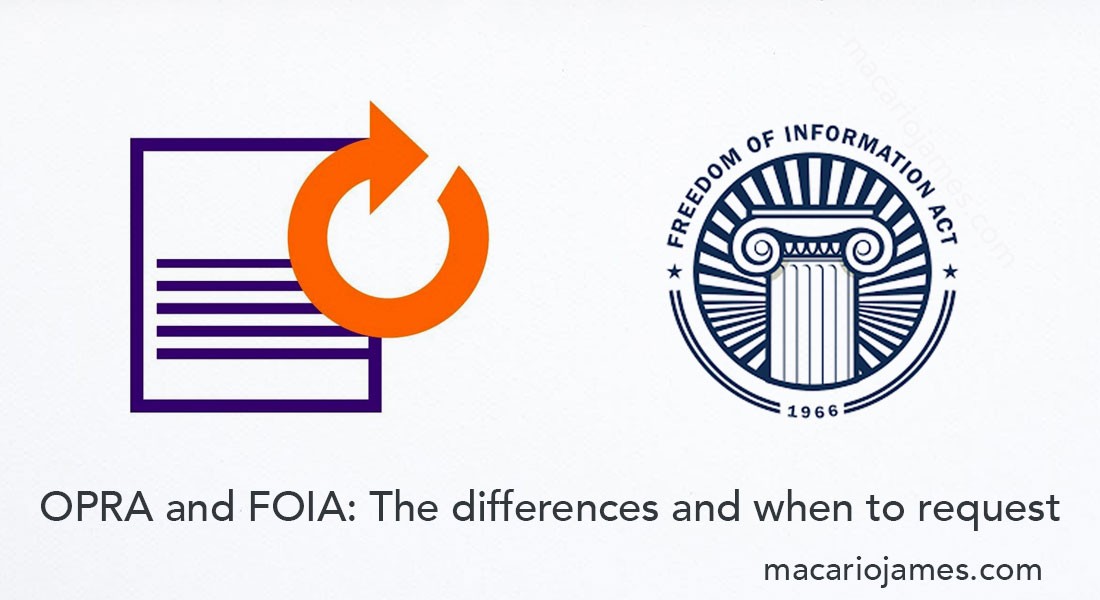Taking a break from my usual tech posts, i started researching the Open Public Records Act (OPRA) and the Freedom of Information Act (FOIA) back in 2017, and i’m just getting back to finishing this piece in 2019.
Important Note: i am NOT a lawyer nor trained in anything regarding legalese or the like. Nothing henceforth should be taken as legal advice; it’s just what i’ve been able to find after reading official governmental documents about OPRA and FOIA requests.
I encourage you to do your own research and then consult with an actual lawyer in your State, if your circumstances permit. All right, with that out the way, let’s talk about what i’ve found.
So, OPRA is actually the name of the NJ Act with some other States having their own version of a Public Rights Act—like California— whereas others—like Connecticut and Arkansas—rely on a form of FOIA.
I’ve gone through this document from the American Bar Association to ascertain a good amount of information. It seems that in recent years—the last decade— many States have introduced or updated Public Record Acts, like Massachusetts with its 2016 update to the Public Records Law.
At the same time, while at first promising, California defanged its proposed Transparency Bill regarding the California Public Records Act (CPRA). The EFF had at first supported it, but two weeks later changed its stance to neutral. Disappointing when i read about this. From what i’ve gathered, California could use a more transparent and easier—really, less expensive and uninhibited by fear of counter lawsuit—way for citizens to request information.
From the EFF’s initial statement showing support of the bill (2017 Aug 23):
Transparency advocates for years have complained about the enforcement measures in the California Public Records Act (CPRA). There is no appeal process when an agency rejects or ignores a records request. The burden is on the requester to go to court to fight for the documents. While the agency may have to pick up the requester’s legal bills, there is no penalty for agencies that willfully, knowingly, and without any good reason violate the law.
The union’s most populous state and the sixth largest economy in the world should be setting an example rather than lagging behind the many states—such as North Dakota and New Mexico—that penalize agencies that improperly handle or reject request for public records.
Seems all States have a dedicated public records officer or coordinator that handles these record requests.
From the CPRA above, it would’ve been deemed that the State didn’t have to hire any new employee just for the position, but could delegate role to someone already employed at the branch. I assume to save money.
Also, requests are explicitly encouraged to be made in written form over electronic means.

